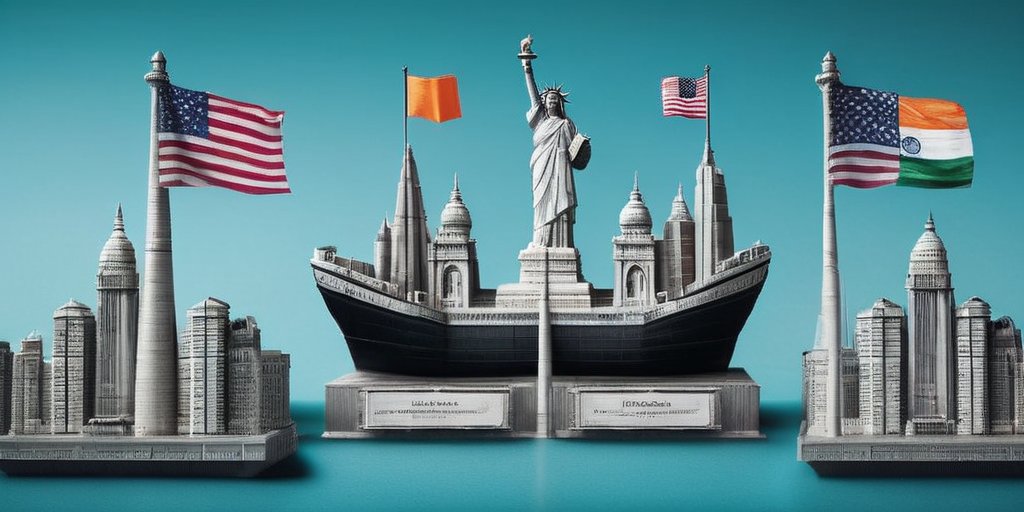As the clock ticks down to a key tariff deadline, negotiations between the United States and India have ramped up significantly. A US delegation has recently arrived in New Delhi, led by Brendan Lynch, the Assistant Trade Representative for South and Central Asia, to engage in crucial discussions aimed at shaping a balanced trade relationship ahead of President Donald Trump’s 2 April deadline to potentially impose reciprocal tariffs on nations, including India.
The US Embassy has emphasized that this visit exemplifies America’s ongoing commitment to fostering productive trade relations with India. A multi-sector bilateral trade agreement is on the table, as highlighted by India’s junior commerce minister, Jitin Prasada, who announced the intent to enhance market access and reduce both tariff and non-tariff barriers during sessions that will continue throughout the week.
Historically, trade tensions have brewed since Trump took office. During a recent unscheduled visit to the US in March, India’s Trade Minister Piyush Goyal underscored the urgency of these negotiations, particularly following Indian Prime Minister Narendra Modi’s visit to Washington in February.
Bilateral trade between the two nations has been robust, peaking at $190 billion, with Trump and Modi setting ambitious goals to increase this figure to $500 billion. However, trade balance remains skewed in favor of India, which currently enjoys a $45 billion surplus. Standard tariffs in India run at approximately 12%, a stark contrast to the US’s average of 2%.
The US has been vocally critical of India’s trade practices, labeling it a “tariff king” amid allegations of extensive tariff abuses. Recently, India responded by lowering tariffs on select products, like Bourbon whiskey and motorcycles, yet concerns continue over trade equity.
In light of Trump’s hardline stance on tariffs—having previously advocated for tit-for-tat tariffs—the dynamics of these negotiations might be shifting. Trump hinted at a potential easing of measures, stating, “We may take less than what they’re charging, because they’ve charged us so much, I don’t think they could take it.” This statement opens a possibility that some countries could be exempt from punitive tariffs, suggesting a more lenient approach may be in the cards, yet the outcome remains uncertain as talks in Delhi progress.
